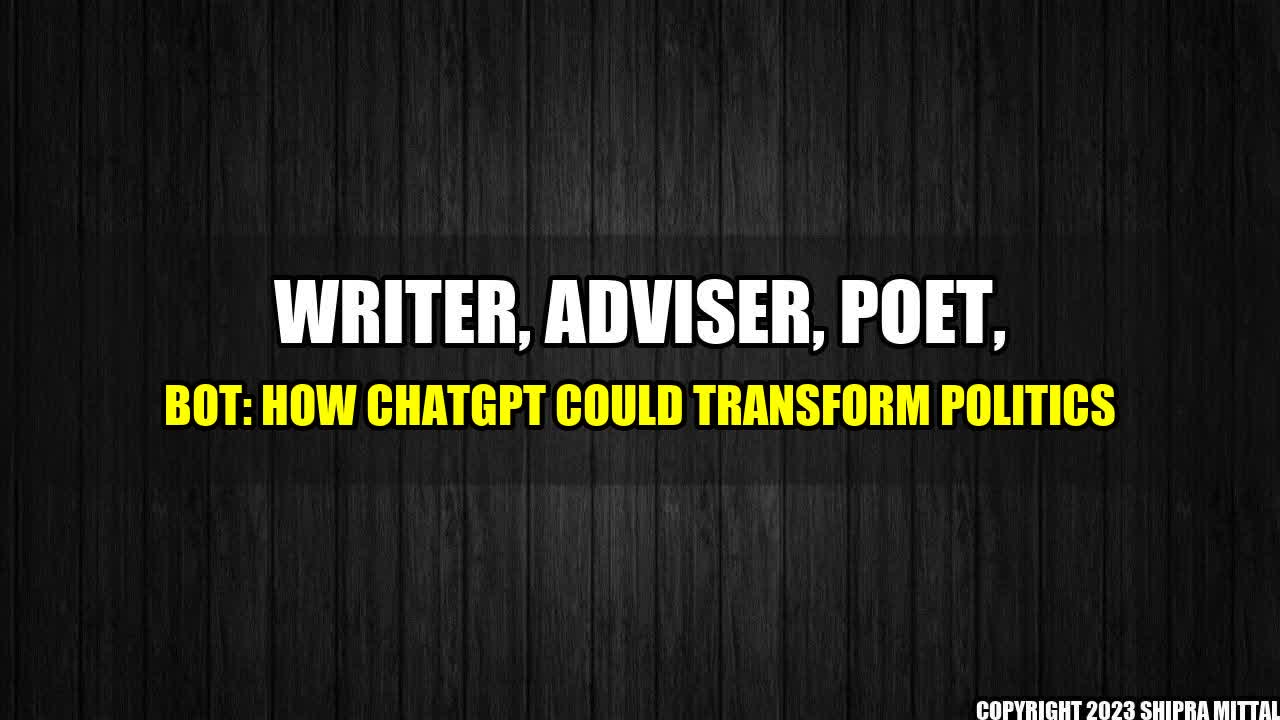The Future of Politics Could be Decided by a Chatbot
It's the eve of the election, and campaign season has been particularly brutal this year. You're feeling overwhelmed by the volume of ads, news coverage, and social media posts. You're not sure who to vote for, and you're not even sure who to trust. Sound familiar?
It's a common experience for many voters, but what if there was a solution? What if there was a chatbot that could help you navigate the chaos of election season, providing unbiased information and advice?
Enter ChatGPT, the AI-powered chatbot that could transform politics as we know it. With the ability to analyze vast quantities of data, ChatGPT could provide voters with personalized recommendations based on their political preferences and values.
But how exactly would ChatGPT work in practice, and what kind of impact could it have? Let's take a closer look.
Concrete Examples of ChatGPT in Action
Imagine you're a first-time voter, and you're not sure where to start when it comes to researching the candidates. You could ask ChatGPT, "Which candidate aligns best with my values on climate change?"
ChatGPT would analyze your previous interactions and social media posts to understand your political beliefs, as well as extract insights from candidate speeches, debates, and voting records to return a personalized response.
Or maybe you're a seasoned voter who wants to stay up-to-date on the latest polling data. You could ask ChatGPT, "How is the election looking in my state?"
ChatGPT would scour the web for the most reliable and up-to-date polling data, presenting you with an interactive visualization of the political landscape in your state.
These are just a few examples of the many ways ChatGPT could help voters make more informed, confident decisions at the ballot box.
Why ChatGPT is Different from Other Political Tools
There are already many tools available to help voters make sense of political news and information. What makes ChatGPT different is its reliance on AI and natural language processing, which allow it to understand the nuance and complexity of individual voters' needs.
Additionally, ChatGPT is designed to be unbiased and transparent, making it a trustworthy source of information in an era where fake news and propaganda are rampant.
Conclusion
- ChatGPT could transform the way voters receive political information, providing personalized, unbiased recommendations.
- By relying on AI and natural language processing, ChatGPT is different from other political tools and is designed to be trustworthy.
- As the political landscape continues to evolve, ChatGPT could become a vital resource for voters of all backgrounds and political affiliations.

Akash Mittal Tech Article
Share on Twitter Share on LinkedIn